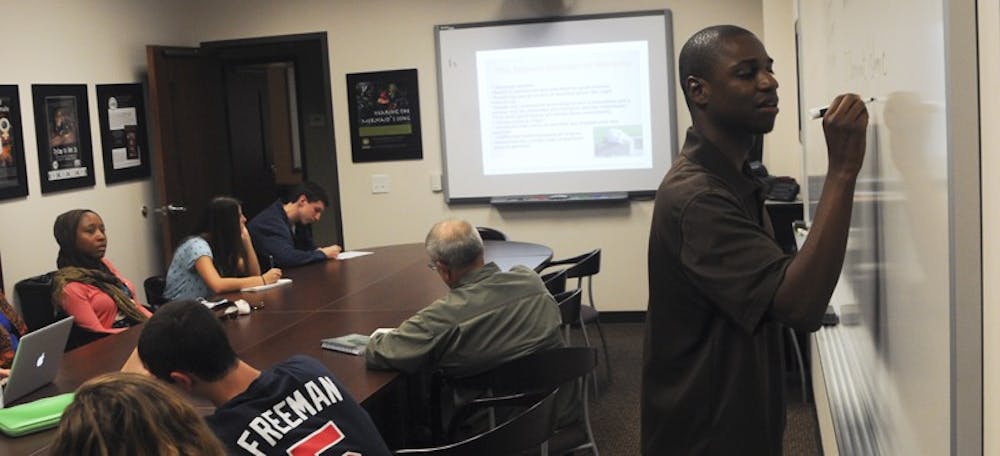McKinnon Hall underwent a transformation from a spacious room in Moseley Center to a small-scale reproduction of Mecca Jan. 15. A collection of Elon University students and faculty assembled in the university room for an opportunity to gain knowledge of the Hajj, one of the five cornerstones of the Islamic faith.
The Hajj, a holy pilgrimage, represents the fifth of the five pillars of Islam. Millions of Muslims journey annually to Mecca, the birthplace of Muhammad, the Islamic prophet. According to Islamic tradition, the pilgrimage is compulsory for all Muslims capable of performing the religious duty at least once in their life.
Junior Nada Azem, vice president of Elon’s Muslim Student Association, oversaw the event.
“The Hajj is a very emotional and a very religious thing,” Azem said. “I hope that Elon students get a little more understanding of what the Hajj is, and a little more respect for Islam.”
Azem said she believes many Elon students are unfamiliar with Islam, but approach the religion with both curiosity and respect.
The production, “Understanding the Hajj,” reflected the Winter Term 2013 theme of exploring diversity and cultivating global awareness within the student body. It was one of many multicultural events on campus this month that serve to engage and educate students about the significance of diversity.
Michael Pregill, professor of Islamic studies, attended the event to answer questions that students may have had about Islam.
“Students nowadays are maybe less biased toward Islam than maybe they were five years ago,” Pregill said. “Despite the fact that America is more Islamophobic now than it has ever been, the average Elon student is generally well-informed.”
“Understanding the Hajj” provided an experiential demonstration of the different rituals associated with the Hajj.
“The event is all about awareness," Azem said. “It’s about putting yourself in other people’s shoes, and in other people’s religion.”


